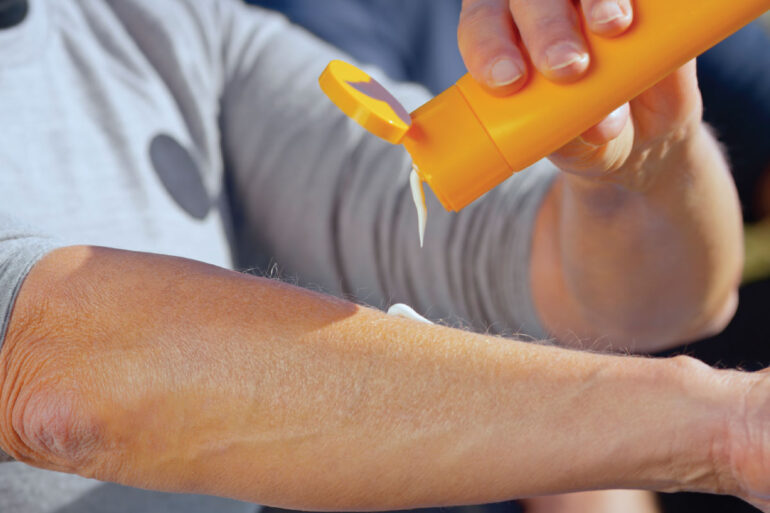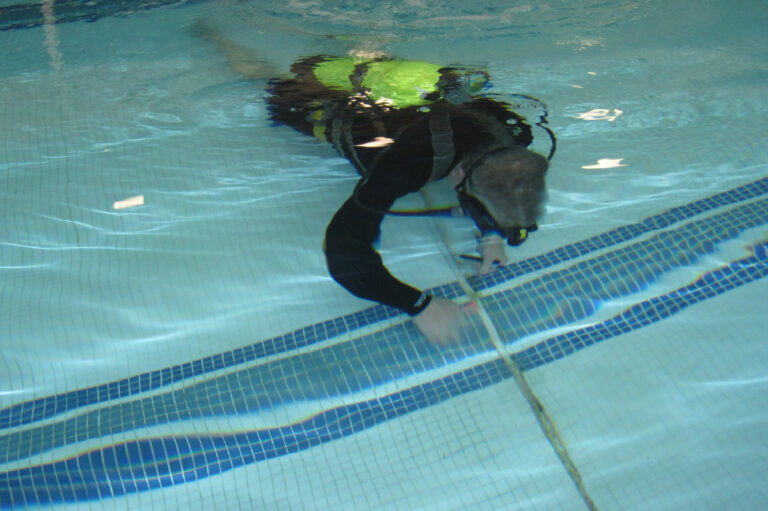Eco-Friendly Pool Care

Sustainability is a growing concern across many industries, and the pool industry is no exception. During a conversation with Greg DeBolt, talent program leader for pool, equipment, water and technical training for Leslie’s, he shed light on why sustainability matters in the pool industry and what professionals can do to promote eco-friendly practices.
Q: Why is sustainability important for the pool industry?
DeBolt: It should come as no surprise that pools consume significant amounts of water, energy and chemicals each year. Not only does this place a strain on finite resources and our environment, but inefficient pool management can also lead to higher costs for pool owners. As awareness of environmental issues grows, consumers increasingly prioritize eco-friendly options, making sustainability a key factor in business success.
According to a recent Harris Poll survey commissioned by our company, 61% of Americans are not familiar with eco-friendly pool care or products. Yet, many people are familiar with other sustainable activities — 94% are familiar with recycling, 92% with reusable shopping bags, 74% with electric vehicles and 54% with eco-friendly lawn care products, according to the survey.
Eco-friendly pool care is achievable and not only good for our planet but also saves resources and money in the process.
Q: What can pool pros do to save energy, water, chemicals, etc.?
DeBolt: Easy changes to pool maintenance routines and simple equipment upgrades are among the top areas. Let’s start with the equipment. If your customers are still using single-speed pumps, one of the fastest and easiest ways to cut their pool energy consumption — and their monthly utility bill — is to have them upgrade to a variable-speed pump. The initial cost may deter some pool owners, but the energy savings alone can pay for the upgrade within two to three years on average, not to mention the other benefits of upgrading to a variable-speed pump.
Cartridge filters are another sustainable upgrade, saving hundreds — sometimes thousands — of gallons per year because this type of filter doesn’t require a backwash cycle to clean it. Other opportunities for equipment upgrades include energy-efficient robotic pool cleaners and LED pool lights, as well as alternative sanitizers to reduce chemical usage. Automation systems can also help maximize energy savings.
Solar pool covers are a great way to help conserve water, especially in dry, arid climates and drought-stricken areas. The average pool loses about one-quarter inch of water per day in the summer, but hot, dry climates can lose about twice as much if not protected. When it comes to chemicals, there are several options to reduce a pool’s chemical needs. Emphasize to your customers the importance of weekly water testing and proper chemical dosing to prevent chemical overuse and minimize environmental impact. Maintaining a clean pool is also helpful in reducing chlorine needs. Alternative sanitizers and enzymes can also help lighten the load on a pool’s available chlorine residual.
Q: How can pool pros talk to their clients/homeowners about sustainable pool care? What products or equipment could they recommend?
DeBolt: The great thing about sustainable pool care products is that they can save pool owners a lot of money with just a few simple upgrades, so it’s an easy sell if you can get the conversation started and showcase the ROI.
The long-term benefits of cost savings, better water quality and reducing the impact on the environment are all key selling points. If customers are on the fence about investing in more costly items, such as a variable-speed pump or a cartridge filter, break down the savings for them. Seeing that the investment will ultimately pay for itself within a few seasons is sometimes all it takes to help them finally make the switch.
Q: What are some tips for updating a pool care routine to be more sustainable?
DeBolt: Investing in energy-efficient equipment that reduces water waste can make the biggest impact.
Even without an equipment upgrade, pool owners can optimize their maintenance routine to maximize savings. Keeping up with weekly water testing and treatment helps avoid issues that may lead to water waste, increased energy consumption and increased chemical usage. As the weather heats up, increasing the cadence to twice a week is even better.
When the pool is not in use, covering the pool helps reduce evaporation, which greatly reduces water and heat/energy losses. Using a pool cover can also help keep debris out of the pool, which helps the chlorine last as long as possible. Speaking of chlorine, alternative sanitizers, and other environmentally friendly products can also help reduce the chemical needs in any pool.
Q: How can Leslie’s support pool professionals who want to find eco-friendly solutions?
DeBolt: At Leslie’s, we have the products and expertise needed to help you get the job done right the first time, with the highest quality products in stock and at a great price. We offer a diverse selection of eco-friendly products, ranging from energy-efficient equipment to innovative solutions that reduce chemical needs and save thousands of gallons of water per year. Our in-store team of experts can help answer any questions about our products, and our certified service team can install new equipment to help you save time.
We also offer many other benefits to pool trade professionals through Leslie’s Pro, including dedicated local resources, special pricing, educational services and a diverse inventory of the latest in innovative, eco-friendly pool care products. No matter what you’re looking for to grow your pool business, we’re your dedicated partner in helping you succeed.





